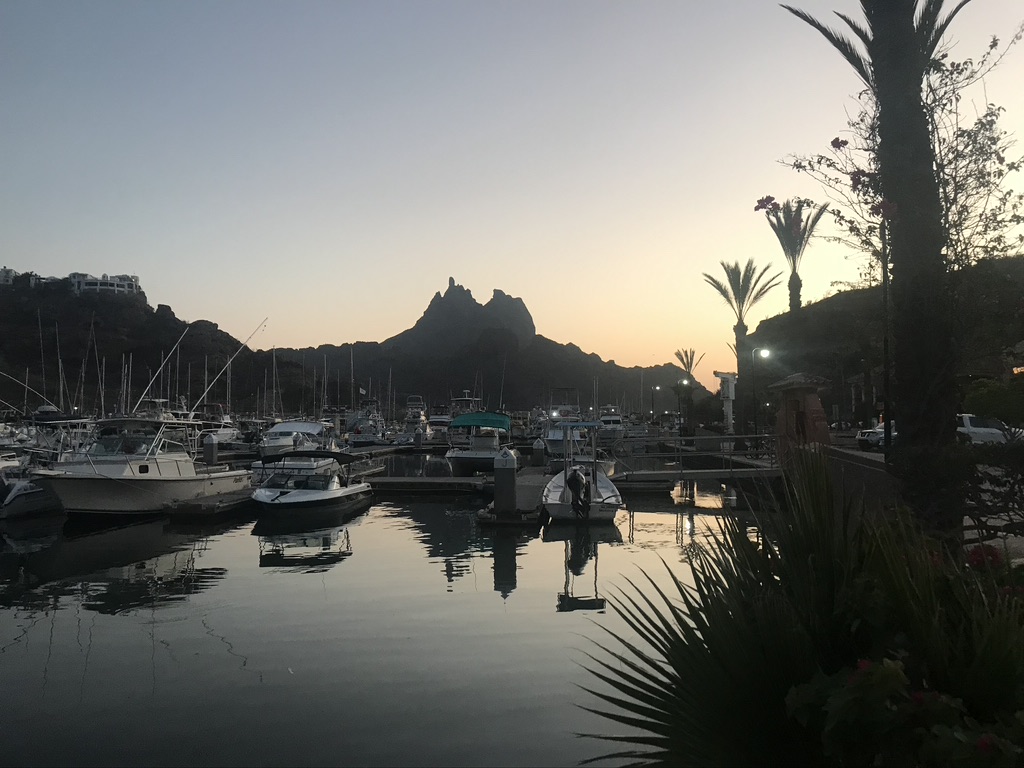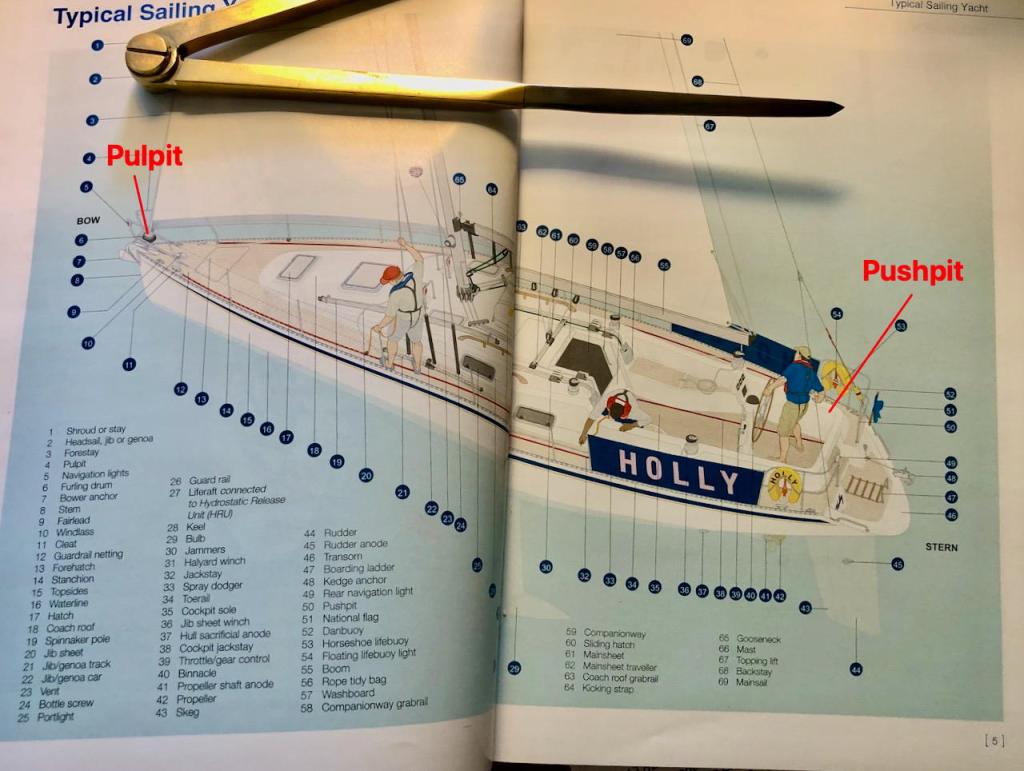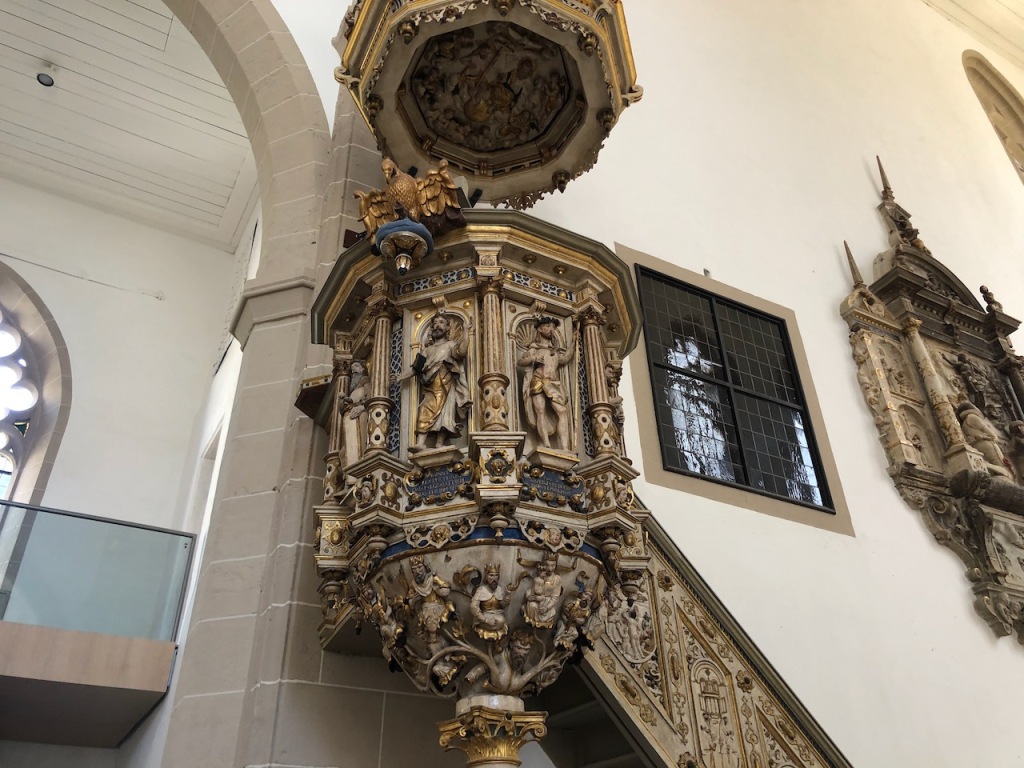Since COVID scuttled our original plans to sail in Greece, our alternative was a sailing school in San Carlos, Sonora, Mexico. This was a long way from Paul’s journeys in the Mediterranean! But we decided that since sailing was our theme, it was more important to have an understanding of how sailing works than to visit archeological sites.
We gave ourselves a few days in San Carlos before our sailing school started, in order to get familiar with the restaurants and practice our Spanish.
San Carlos was voted by National Geographic to have the most spectacular ocean views in the world. So after settling into our lovely family-run hotel, we took a taxi to “El Mirador.” There is an observation point that juts out over the ocean, with views on every side. Below, birds wheel and coast in the air currents. At the tip of the point, the wind is so strong that visitors clutch their hats or phones.
The twin peaks of Tetakawi are visible from anywhere nearby. It is striking how these massive rocks seem to change every hour, although they never move. The air, the light, the clouds, all paint the mountain in different colors and shades. It’s like a giant kaleidoscope. I understand why Claude Monet was moved to paint the Rouen Cathedral again and again in different light conditions. We found ourselves pointing and staring at it every day, multiple times a day. It’s like God was painting it over and over again, showing off a divine impressionism.
The other ocean view we had during our time in San Carlos was up close and personal. Jacques Cousteau said that the Sea of Cortez was “The Aquarium of the World,” filled with marine biodiversity. People come to snorkel and see huge varieties of wildlife. Dolphins would come and swim alongside our boat, attracted by the wake (and the fact that we didn’t have noisy engines). There was one large group of females, and a couple of adorable baby dolphins, who sped along at our side. Various sea birds bobbed on the surface. We also got to see thousands of two-inch wide purple jellyfish: the Portuguese Man-o-war. We kept our distance from their sting.
Humans throughout history have talked about the ocean in reverential tones. It is massive, powerful, teeming with life. It responds to cosmic forces like gravity and the spin of the earth. I think it is important to experience it from multiple vantage points to cultivate the appropriate respect. It’s alive, and it’s essential for our survival on this planet.
The city of San Carlos has a large ex-pat population. Many Americans and Canadians move to San Carlos to sail or spend their retirement near the beach. Like many places around the world, there is a large gap between rich — or even the merely comfortable — and the poor.
Sailing today is largely a hobby of the wealthy and middle-class, not a vital transportation mode for everyone. But this shift in global dynamics is driven by “cheap oil.” Of course, we know that fossil fuels are not really cheap; they are deferred cost which will have to be paid by future generations. I suspect that as wind and solar power become more mainstream, gas-guzzling boats will give way to more sail power. Shipping companies are already going “back to the future” by exploring wind power. Part of my desire to become more proficient at sailing is simply to have a method of travel that doesn’t require airplane or boat fuel.
We were able to get experience on three very different boats: a single-mast 26-foot boat, a vintage two-masted ketch, and a very large catamaran (which our instructor called “a floating condo”).
Having the skills to sail suddenly opens up a new world of opportunities for travel. Boat captains are often looking for crew to help them make journeys, and there are websites that match teams by personality, skills, and destinations. While I don’t plan on making any trans-Atlantic trips anytime soon, I certainly wouldn’t rule it out. There is much more of this amazing planet to see.
Prayer: God who paints the landscapes, cosmos, and creatures, thank you for filling the universe with such beauty.
—Rev. Dr. David Barnhart, Jr.





















